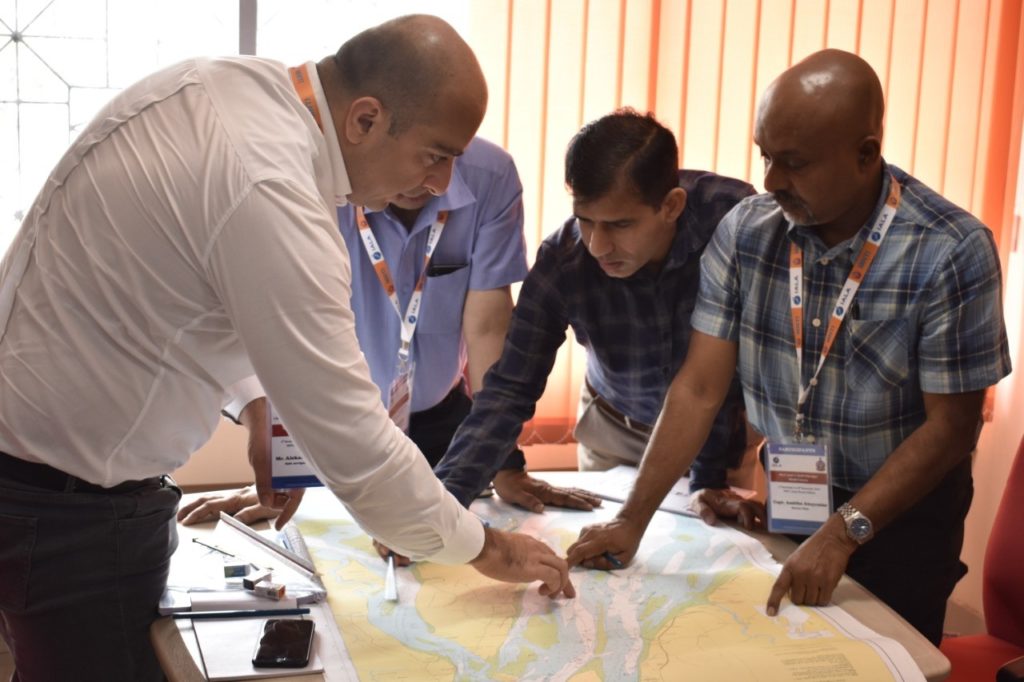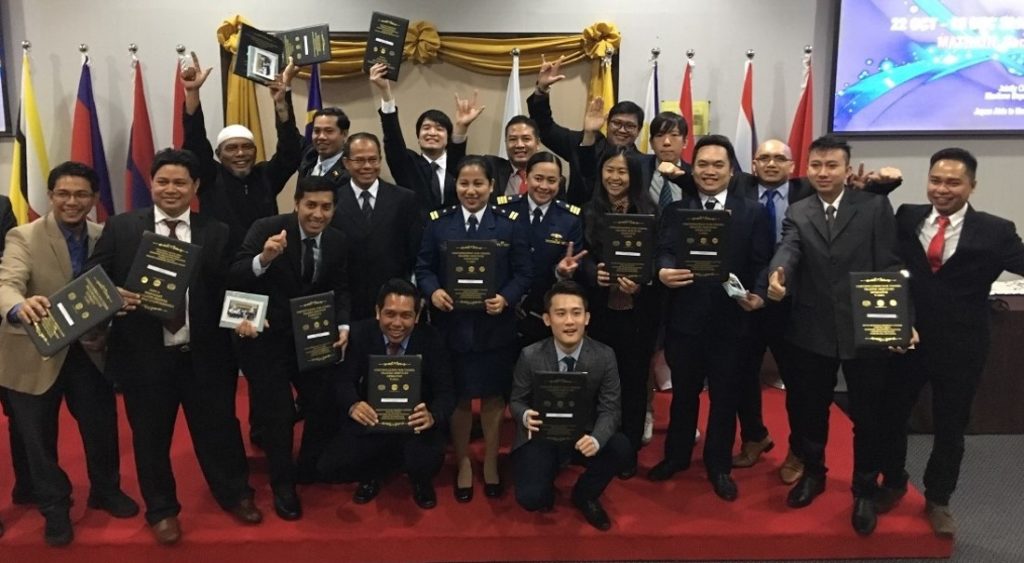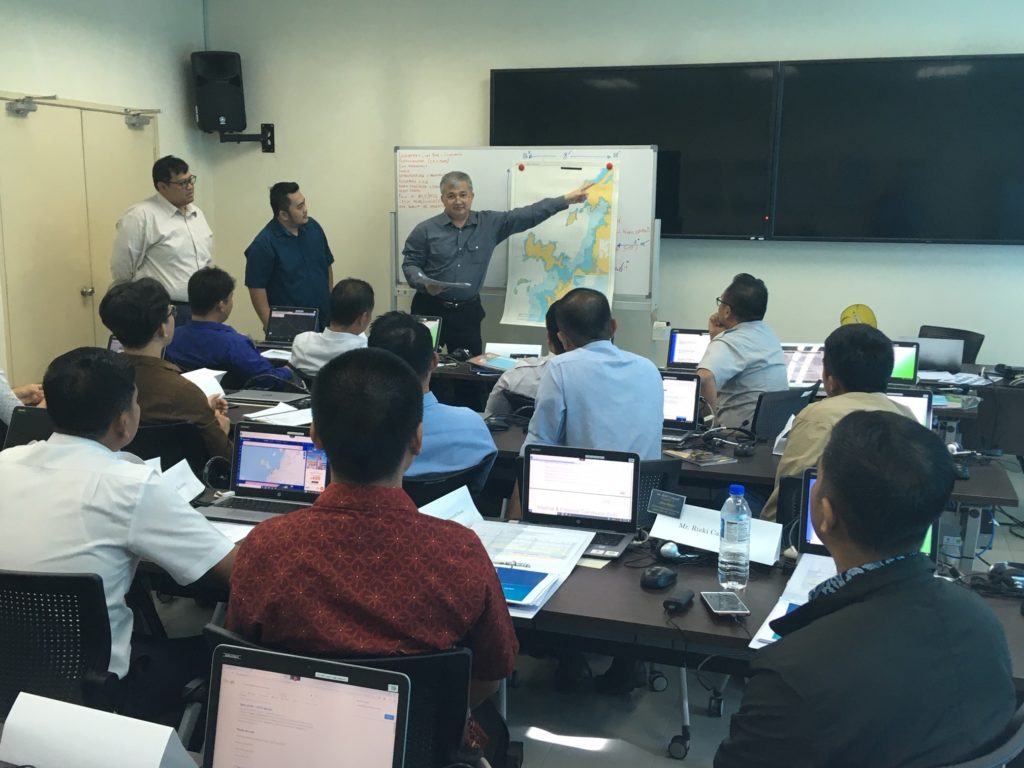Academy training programmes
The successful delivery of AtoN services depends upon competent and experienced personnel to implement and maintain such aids. This means that IALA should not only define international standards for the AtoN themselves, but also for the personnel in charge of their implementation and their maintenance. The recruitment, selection and training of suitable personnel are pre-requisites to the provision of professionally qualified personnel capable of contributing to safe and efficient AtoN operations.
Based on the IALA model courses, a series of training programmes have been developed as illustrated below:

The IALA model courses provide a framework for the training and education of professionals involved in the strategic and operational management of AtoN/VTS services.
- The AtoN Technician programme provides a framework for the training and education of personnel tasked with conducting the installation, servicing, maintenance or replacement of marine aids to navigation and their components.
- The AtoN Manager programme covers fundamental principles of effective management, with a significant emphasis on the implementation of IALA standards, to enable coastal States to have suitably qualified professionals to effectively discharge their obligations under the SOLAS Convention.
- The AtoN Master programme covers more in depth principles of effective management with emphasis on good governance and strategy.
- The Vessel Traffic Service programme covers the aspects of delivering a Vessel Traffic Service described in the V103 series of model courses. The IALA VTS V-103 model courses are delivered by a global network of accredited training organisations.
- The Risk Management programme provides training on the use of the IALA Risk Management Tools, including SIRA, PAWSA, IWRAP and simulation.
Language skills requirement
IALA courses are delivered in English, French and Spanish with Arabic and Portuguese programmes under longer-term development. The range of languages is continuously under review and other languages may be available upon request drawing on the expertise of the global network of accredited training organisations.
For courses delivered in English, it is expected that participants should have attained the International English Language Testing System (IELTS Band 5 or equivalent) prior to commencing the course to maximise the learning experience and to facilitate full participation:
“You have a partial command of the language, and cope with overall meaning in most situations, although you are likely to make many mistakes. You should be able to handle basic communication in your own field”.



Overview of IALA model courses
The international character of shipping operations generates the need for a common approach and universally agreed standards for Marine Aids to Navigation (AtoN). According to the SOLAS Convention Chapter V, Regulation 13, Paragraph 2, “In order to obtain the greatest possible uniformity in Marine Aids to Navigation, Contracting Governments undertake to take into account the international recommendations and guidelines when establishing such aids.” Reference is made within the footnote to the Regulation to IALA Recommendations and Guidelines.
To support compliance with the requirements of Chapter V of the SOLAS Convention related to Vessel Traffic Services and Aids to Navigation and the effective implementation of the IALA standards world-wide, a range of IALA model courses are available across several subject areas:
- Marine Aids to Navigation Manager courses (IALA Level 1 series)
- Marine Aids to Navigation Technician courses (IALA Level 2 series)
- Vessel Traffic Service courses (IALA V-103 series)
These model courses are developed by the IALA technical committees and approved by the IALA Council for publication. The Academy works closely with the committees; their Working Groups, and where appropriate with IALA Industrial Members, to ensure that model courses and other training documentation are maintained in the most efficient manner for the benefit of IALA Members, potential Members and their accredited training Institutes and Organizations. To this end, IALA produces a number of publications. These are based on two key, and normative, IALA Recommendations under the IALA Training Standard S1050:

- R0141 on Standards for Training and Certification of AtoN Personnel
- R0103 on Standards for Training and Certification of VTS Personnel
AtoN Management
A complete set of Marine AtoN Management model courses are updated regularly by the IALA technical committees.
- L1.1 : Marine AtoN Manager Training
- L1.2 : Master of Marine AtoN Management
- L1.3 : Use of the IALA Risk Management Tools
- L1.4 : Global Navigation Satellite System (GNSS) and e-Navigation
- L1.5 : Historic Lighthouse Projects
The first three model courses are delivered on a regular basis, some by accredited training organizations, with assistance from the Academy, and some by the Academy itself. The GNSS course and the Historic Lighthouse projects course are delivered by the Academy on demand.
AtoN Technician
A set of 30+ Technician training model courses have beed developed by the IALA technical committees adressing specific technical topics related to AtoN maintenance and operation. Aids to Navigation service providers base their technician training on these model courses. In some cases the courses are developed further to address particular topics related to the maintenance and operation of specific systems and equipment used by the AtoN service provider.
Vessel Traffic Service
A complete set of VTS model courses are updated regularly by the VTS Committee. These are delivered by accredited training organizations around the world.
- V-103/1 : VTS Operator Training
- V-103/2 : VTS Supervisor Training
- V-103/3 : VTS On-The-Job Training
- V-103/4 : VTS OJT Instructor Training
- V-103/5 : VTS Revalidation Process
